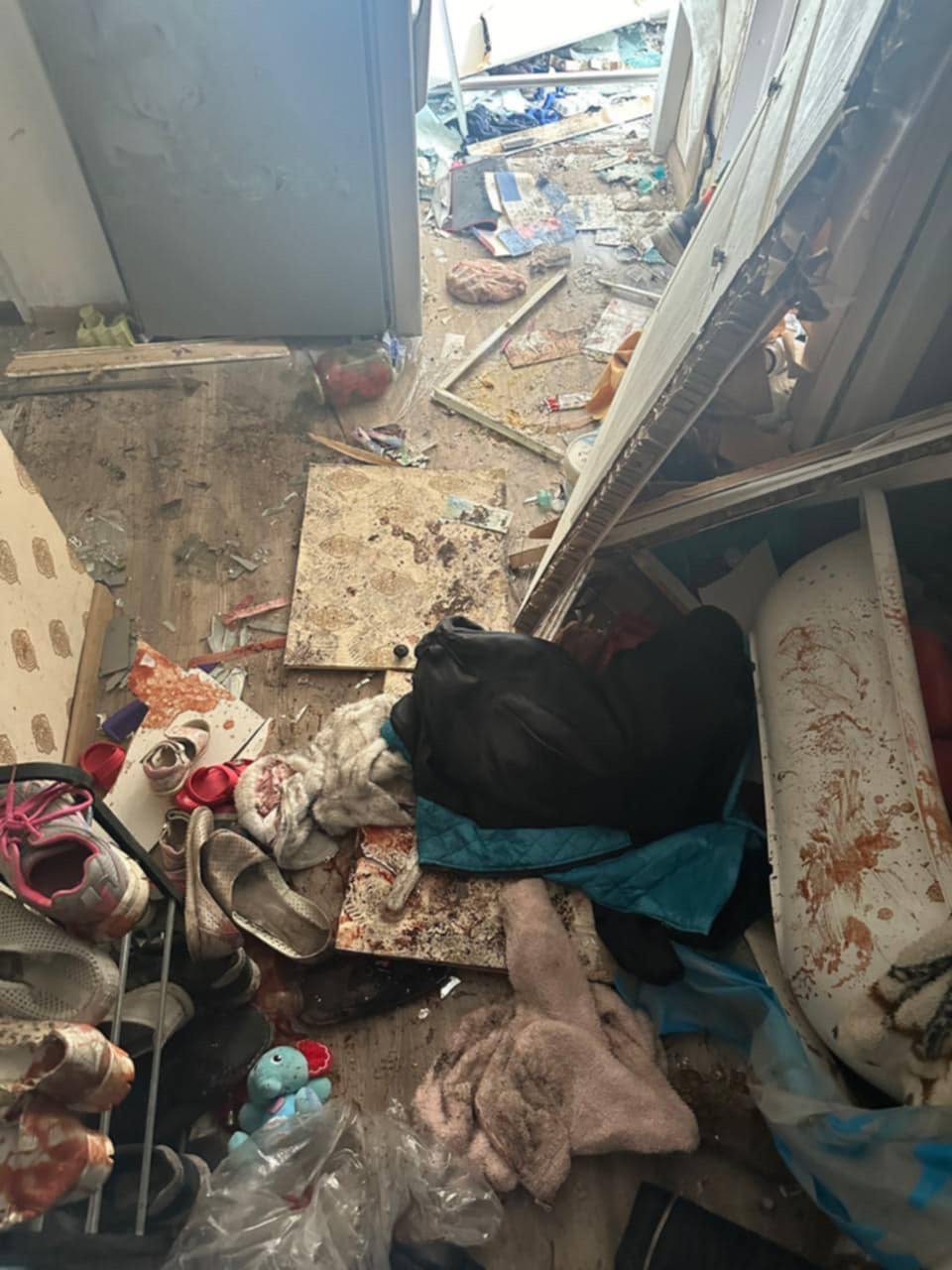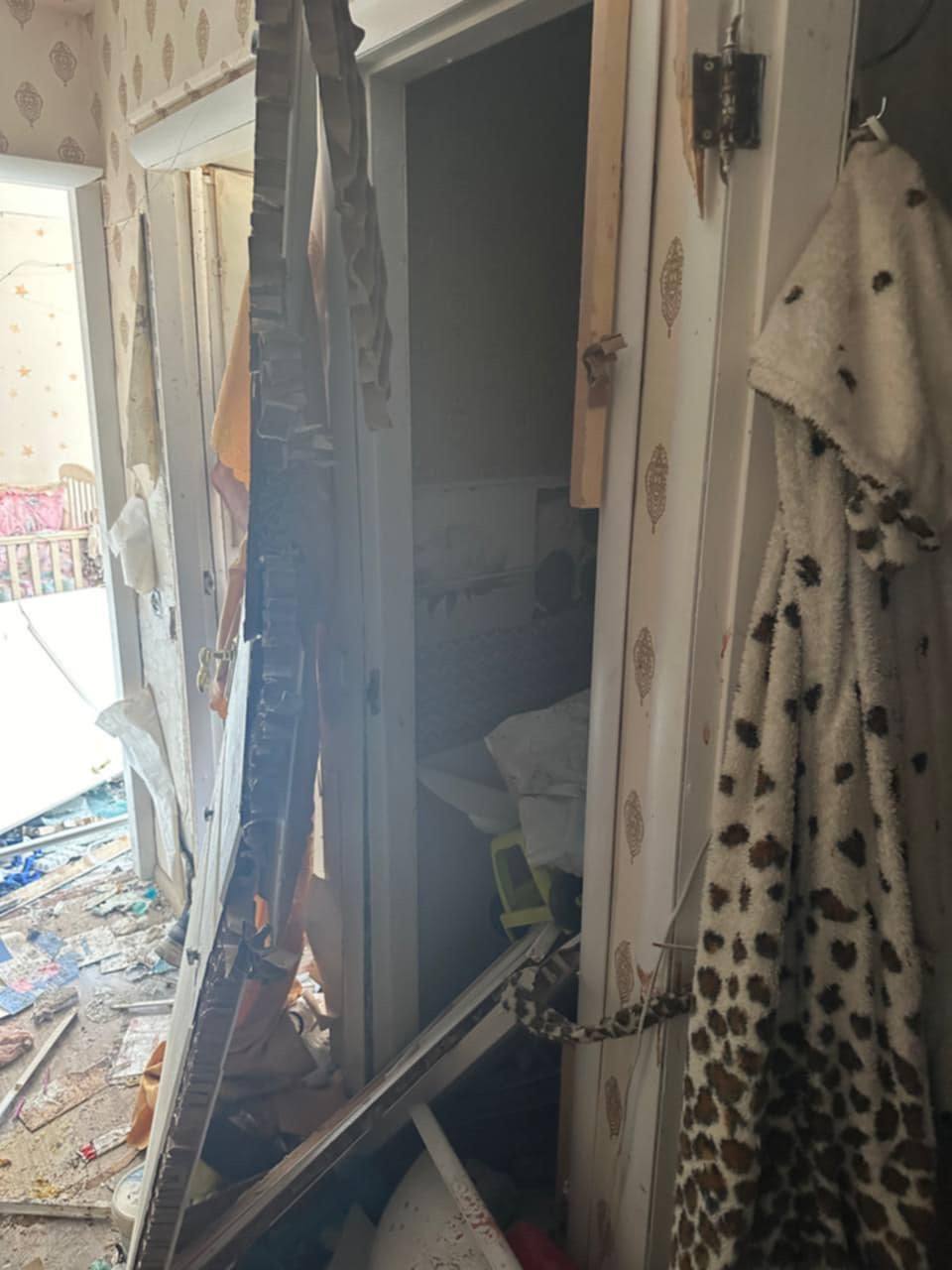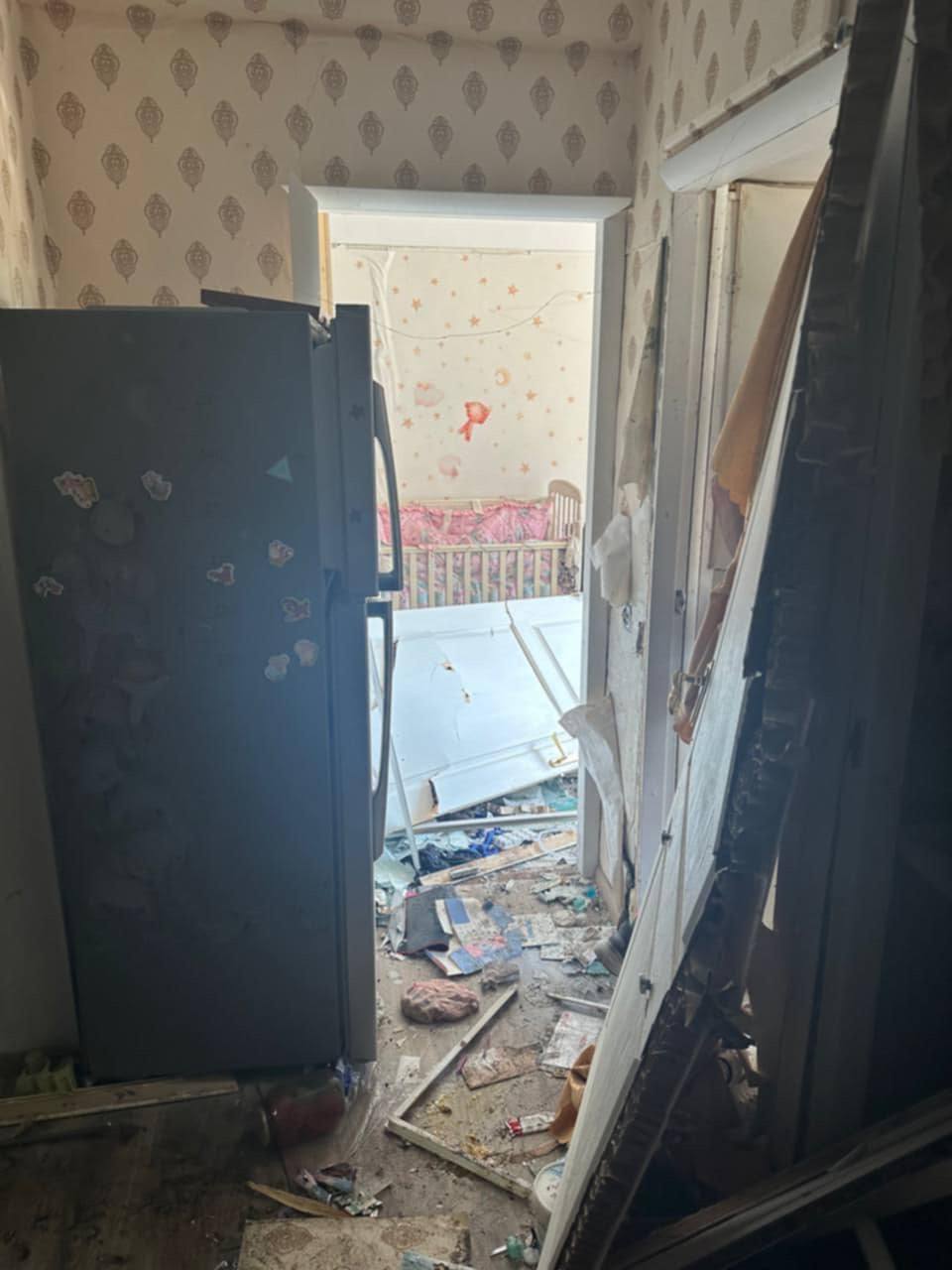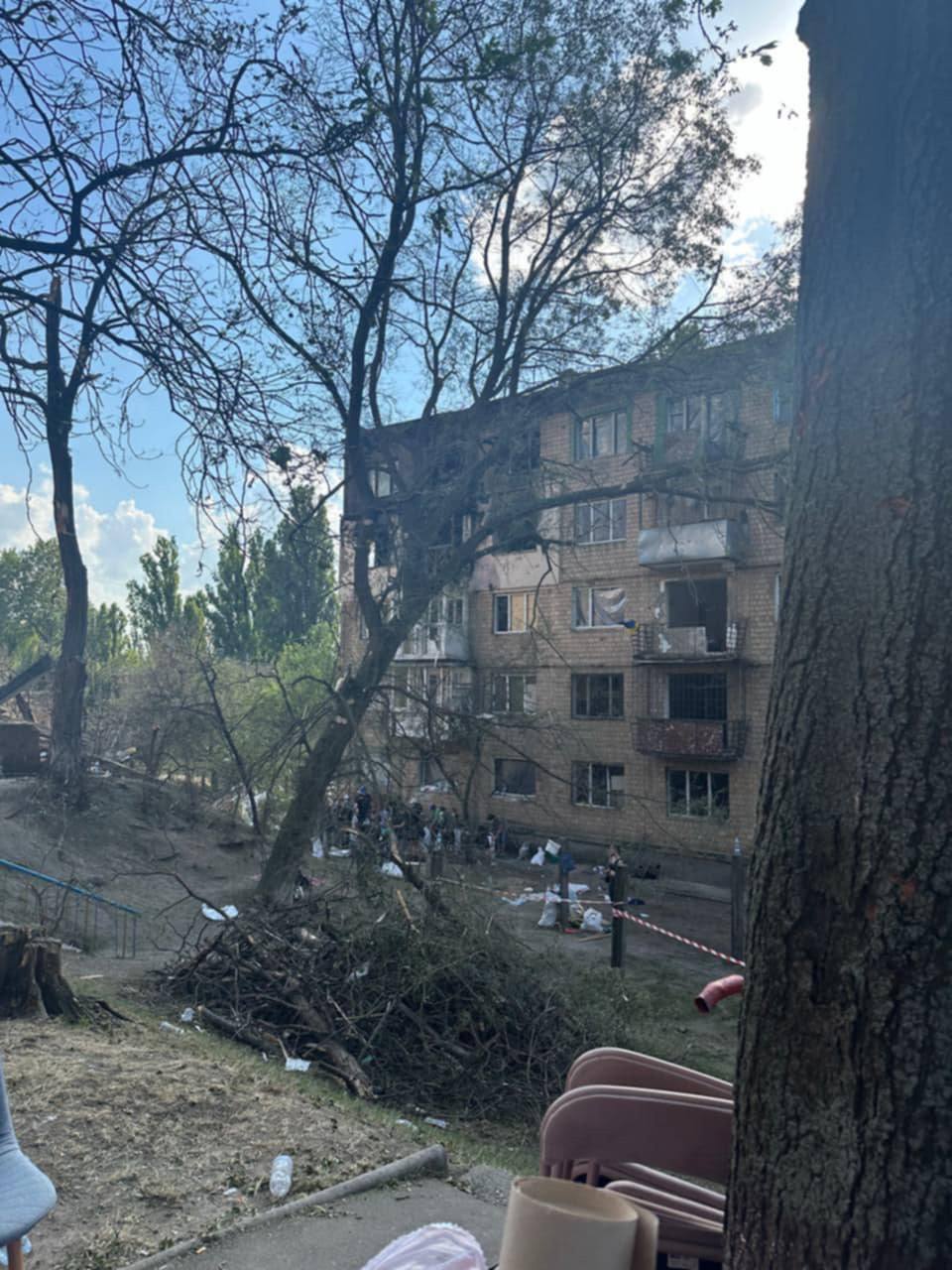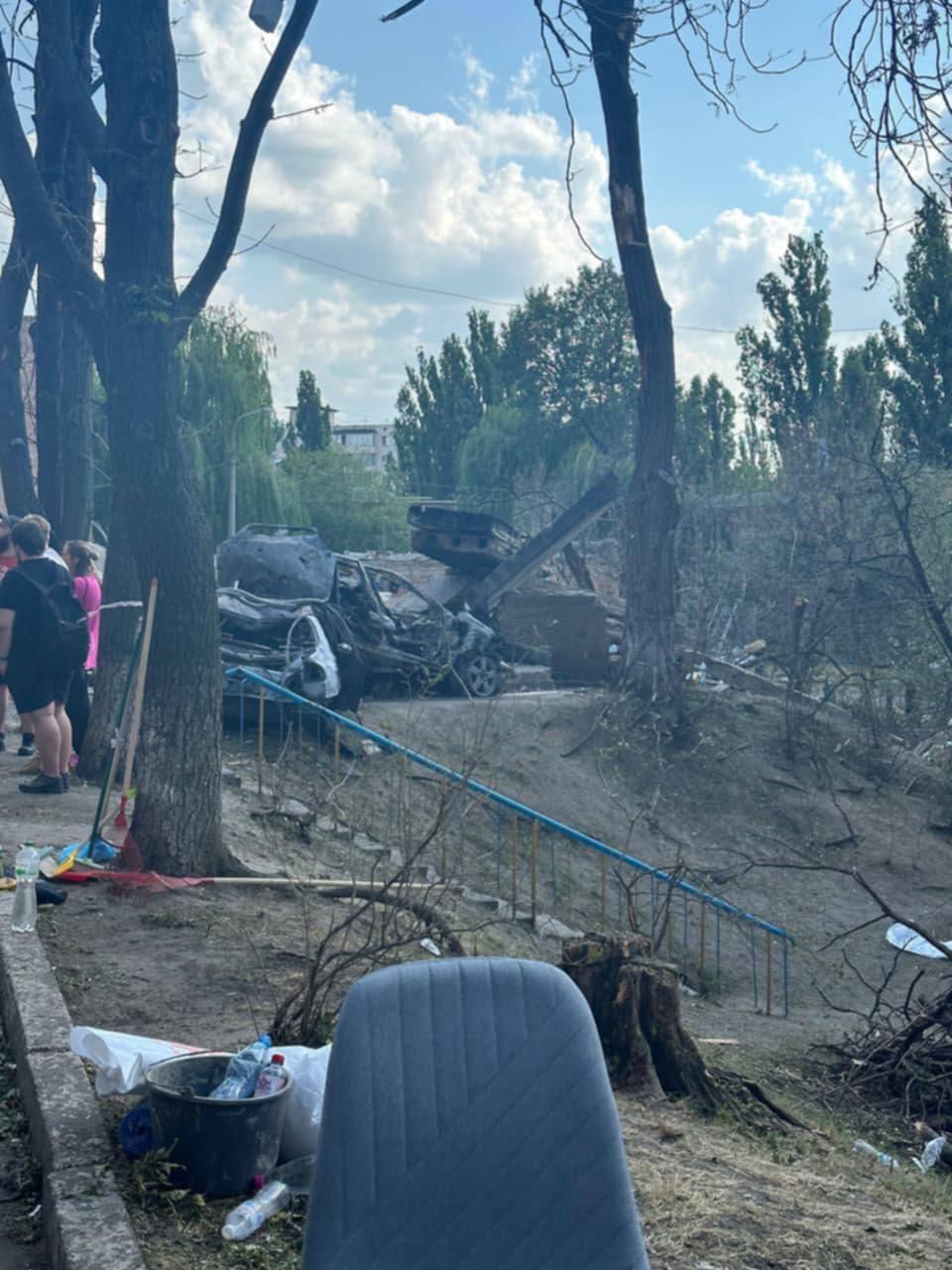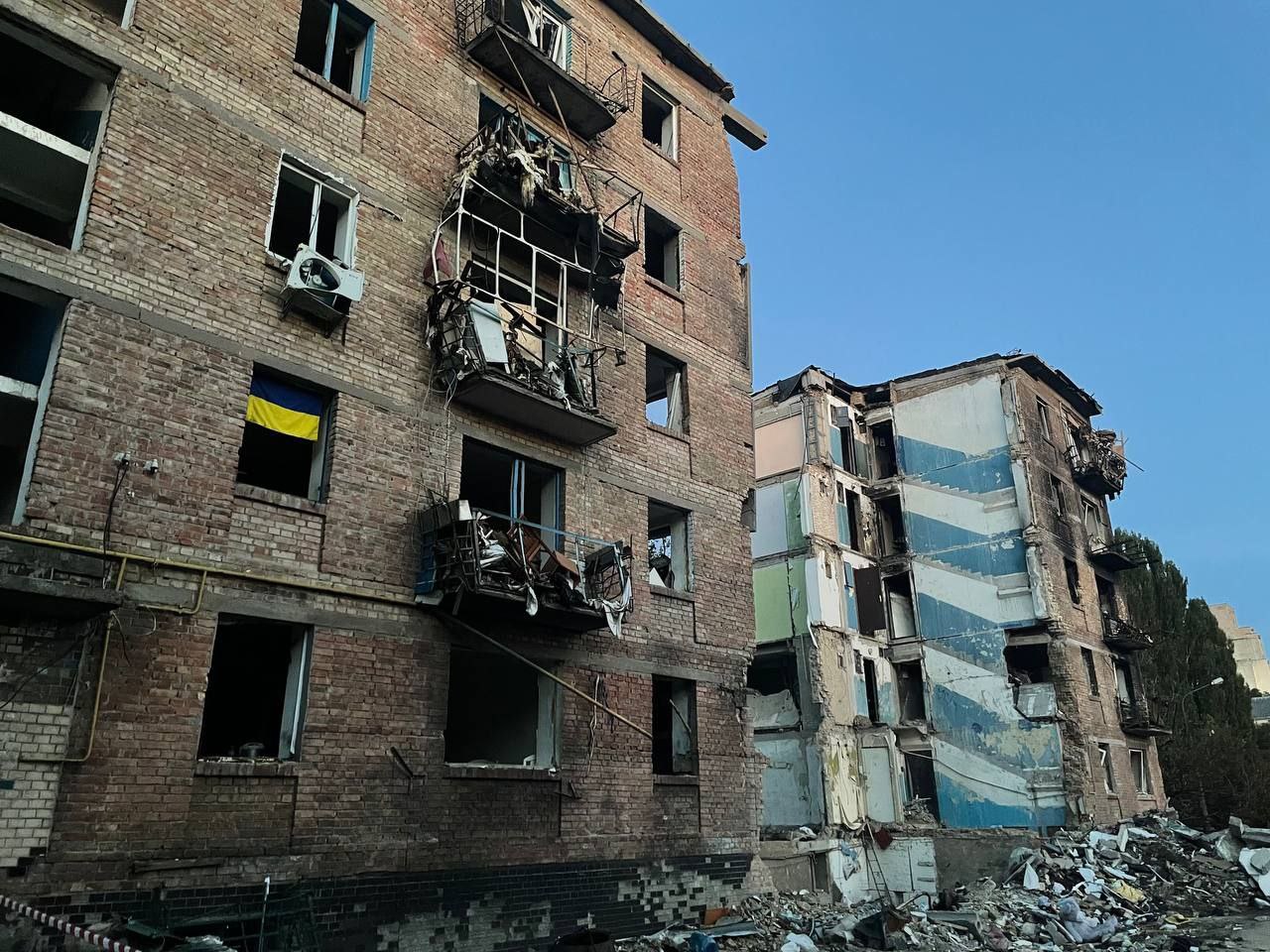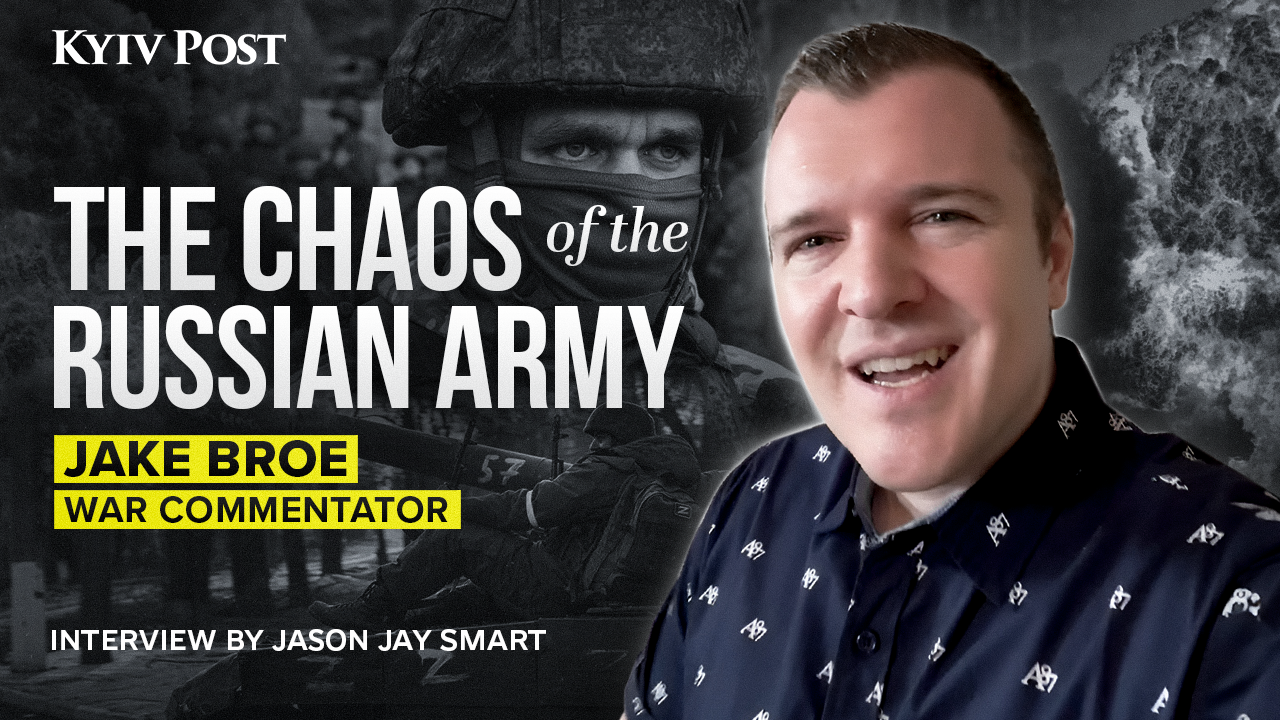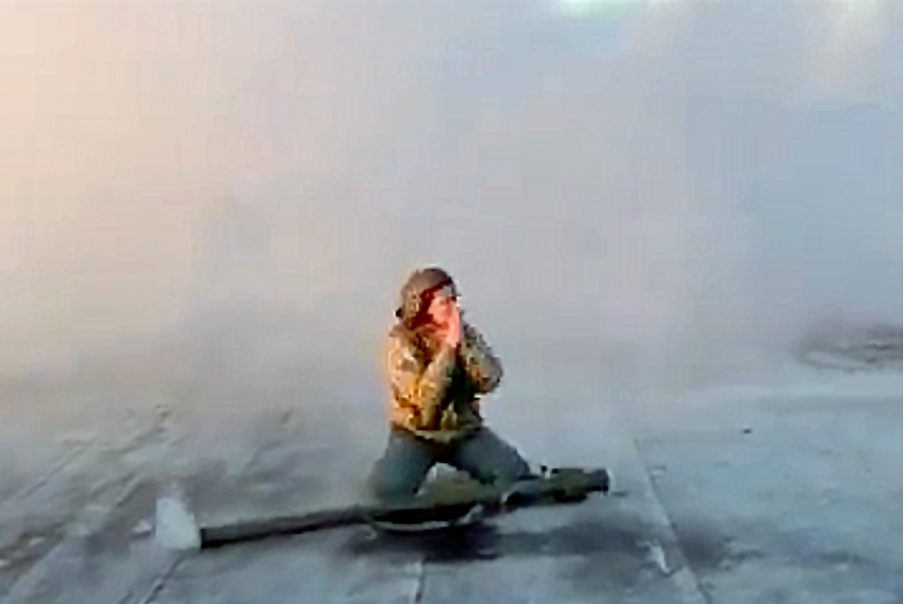Thirteen people, including five children, were killed in a five-story building on Salskoho Street in the Shevchenkivsky district of Kyiv during a Russian missile attack on July 8 – which local authorities said was the largest number of people killed in one of the capital’s residential building in Kyiv.
Two entrances to the building were destroyed, and the remainder of the apartments were either burned out or suffered structural damage.
JOIN US ON TELEGRAM
Follow our coverage of the war on the @Kyivpost_official.
Kateryna Pavlenko, a young widow of a Ukrainian serviceman, lived in one of these apartments with her little daughter and six-month-old son.
Less than a year has passed since her husband, Dmytro Pavlenko, the commander of the unmanned aerial vehicle squad of the aerial reconnaissance unit of the Ukrainian Armed Forces (AFU) with the call sign "Virus," was killed in the southern sector, leaving Kateryna pregnant and with their daughter.

On the day a Russian missile hit the apartment building on Salskoho Street, leaving the Pavlenko family without a home, Kateryna and her children were away from home.
“We are all together with our neighbors, we are like one family. We help each other, support each other, and are always in touch.”
In a conversation with Kyiv Post, the widow of the fallen soldier said: “After losing your home, it’s hard to go on. Especially when you have two small children. I have not only to take care of myself but also of them. If you are alone, that’s one thing, but if you have children, you need to think about their well-being.”

QUIZ: Do You Know Who Will Lead Trump’s New Foreign Policy Team?
Kateryna revealed that she feels a colossal change in her children’s behavior.
“I lost my home; there was nothing left that was related to my beloved... But there are children left, and I want to give them everything so that they don't need anything,” she told Kyiv Post.

“But the children sense my weakness and take advantage of it a little. You can't fight and shout because they still understand that something has happened, and in this way, they can be hurt,” added Kateryna.
According to her, nothing is happening at the scene of the tragedy. Only three weeks later, officials came to see the condition of the housing. They said that the special commission would arrive in another two or three weeks, Kateryna added.
“But we are all together with our neighbors, we are like one family. We help each other, support each other, and are always in touch,” she said.
Kateryna clarified that no one lives in the building now because it is in a total state of disrepair and utilities have been disconnected.
According to her, the city authorities promised to settle people who wrote statements that they needed temporary housing.
"The authorities did not contribute to providing normal housing for the family of the fallen hero"
"But three families live in a three-room apartment. Each family has a room," Kateryna said.
Kateryna was offered a one-room apartment for temporary accommodation by someone else. However, she said the condition of the flat was unacceptable. A 64-year-old woman who died in 2017 used to live in the apartment, after which it was sealed.
“Her old things are there, the apartment was not cleaned, there are no repairs, and there are also cockroaches and bugs running around. I turned to the director who allowed me to live in this apartment and said that it is unfit for living,” Kateryna said.
“The answer was: ‘Move in and slowly make repairs, take out those things and bring in your own,” the widow said. “I asked where I should get money for this. His answer killed me – ‘That's not my problem. Do you want the apartment or not?’”
However, Kateryna managed to secure a one-room studio in a new building for herself, her mother, and her children.
“At least no one died there, and there are no strangers. Somehow, we settled there,” she added.
“But the authorities did not react in any way and did not contribute to providing normal housing for the family of the fallen hero,” said Kateryna.
She is on the waiting list for better housing, but the housing director told her that “a line is a line” when she said, “But these are force majeure circumstances, and I have nowhere to live with my children! He answered, ‘In front of you are people who have a certificate of a participant in hostilities (UBD). How do I move them?’”
“This year, and probably next year, I won't get my apartment,” Kateryna added.
Despite all the difficulties, the widow of the war hero with two small children is holding steady: “I am distracted by the thought that thank God (but it seems to me to my beloved), this trouble has passed us by, and I can look at my children and see their smiles and hear their laughter.”

“I want to scream, sob, and climb the walls. Less than a year has passed since I lost my beloved husband and the meaning of my life, and now they [Russians] have also taken away my home and everything that was connected with him.”
On the morning and noon of July 8, Russian troops launched a massive missile attack on Ukraine, targeting the cities of Kyiv, Dnipro, Kryvyi Rih, Sloviansk, Kramatorsk, and Pokrovsk, using more than 40 missiles of various types. As a result of this attack, a total of 47 people died - 33 in Kyiv, 10 in Kryvyi Rih, three in Pokrovsk, and one in Dnipro. About 190 people were injured.
The Russian attack on Kyiv on July 8 became the deadliest in terms of casualties and the second largest in terms of the number of victims since the beginning of Russia's full-scale invasion.
In Kyiv, the largest children’s hospital in Europe, the Ohmatdyt National Specialized Children’s Hospital, where 627 children were present at the time of the rocket attack, was partly destroyed.
You can also highlight the text and press Ctrl + Enter



